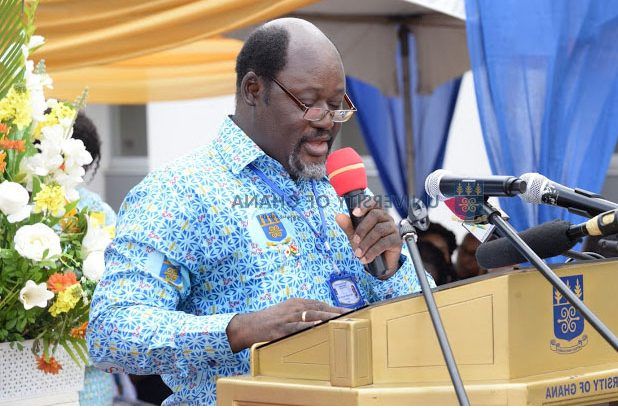
Confronting future viruses head-on: Invest in research – institutions challenge nation
Two of the country’s top medical research institutions are advocating the injection of massive investment in research to prepare the country to fight infectious disease outbreaks.
The institutions — the Noguchi Memorial Institute for Medical Research (NMIMR) and the Kumasi Centre for Collaborative Research (KCCR) — say the coronavirus disease (COVID-19) has shown that research plays a crucial role in the survival and development of a nation, thus, the need for investment in that regard.
Speaking to the Daily Graphic in Accra last Wednesday, the Director of NMIMR, Prof. Abraham Kwabena Anang, said: “In view of global health emergencies, COVID-19 will not be the last influenza, since influenza viruses had a certain pattern that shows that there will be a new strain of virus as the years go by, so we should continue to invest better in our science than we have done before,” reports Juliet Akyaa Safo.
Noguchi role
Touching on the role of the institute in the fight against COVID-19, he said the institute, being at the frontline, initially recorded negative cases, until the country started recording positive cases which were mostly imported.
“So when the positives started coming, obviously that set in motion the bigger demand for testing because once we find the positive, we also do the contact tracing which is being spearheaded by a specialised contact tracing team put together by the Ghana Health Service (GHA),” he said.
He said their testing capacity had increased from 1,200 cases daily to a little more than 3,000 samples daily and had tested over a 100,000 samples now.
Safety measures at Noguchi
He said stringent measures such as adequate provision of Veronica bucket systems, hand sanitisers and face masks to limit the spread of COVID-19 had been put in place to prioritise the safety of the staff at the institute.
“We have also put in place very careful bio-safety and bio-security measures and, thus, have taken control of the process.
“The door knobs and the door handles are regularly disinfected and everybody who is getting in is monitored and there are people who have been tasked to open the doors for everybody and also make sure that the sample analysis itself was well controlled,” he said.
Prof. Anang said so far, no worker at the institute had been infected while at post.
From Kumasi, Kwadwo Baffoe Donkor writes that the KCCR has been under immense pressure, testing for samples to determine the coronavirus status of suspected persons.
Currently, the centre runs two main shifts of 12 hours each, all in an attempt to fast-track the testing process.
So far, the centre has run more than 40, 000 tests, and receives and tests about 2,500 samples daily.
The samples come from the Northern, North East, Upper West, Upper East, Bono, Ahafo, Bono East, Western and Central regions.
Pressure
![]()
Dr Michael Owusu
Aside from the staff being under pressure to deliver, the equipment at the centre had also been under immense pressure.
Speaking to the Daily Graphic, a Virologist at KCCR, Dr Michael Owusu, said working at the laboratory and testing for the virus was a very risky job as every sample “is a potential positive case and the least mistake could lead to an infection.”
According to him, even how the samples were brought to the laboratory could be a potential source of contamination since some were not well packaged and could spill over.
That notwithstanding, he said the centre followed strict safety measures to ensure that the scientists working on the samples were well protected and the environment, regularly disinfected to ensure that the place was safe for working.
Limelight
For the scientists working day and night at the centre testing for coronavirus, he said, “it is exciting and fascinating to be in the limelight.”
But according to Dr Augustina Sylverken, also a virologist at the centre, “for us at KCCR, we have been working on coronavirus for a very long time. So this is like something we have been doing.
“Maybe it is because we are in academia and have not come out to talk about our works and only interested in publishing our findings in scientific journals.”
![]()
Some of the frontline workers of the KCCR at the KNUST campus in Kumasi. Picture: EMMANUEL BAAH
Opportunity and threats
That notwithstanding, she believes the pandemic has given the centre and the scientists the opportunity to educate the general public on the virus. “It is exciting to be out in the limelight but it also has its own implications.”
Even though the stigma attached to their work was not that pervasive as compared to people who had tested positive and living in communities, Dr Sylverken said some people jokingly called them “Corona hunters” and some even refer to the centre as corona building.
For the staff working daily at the centre, family life has not been the same since the advent of the pandemic.
